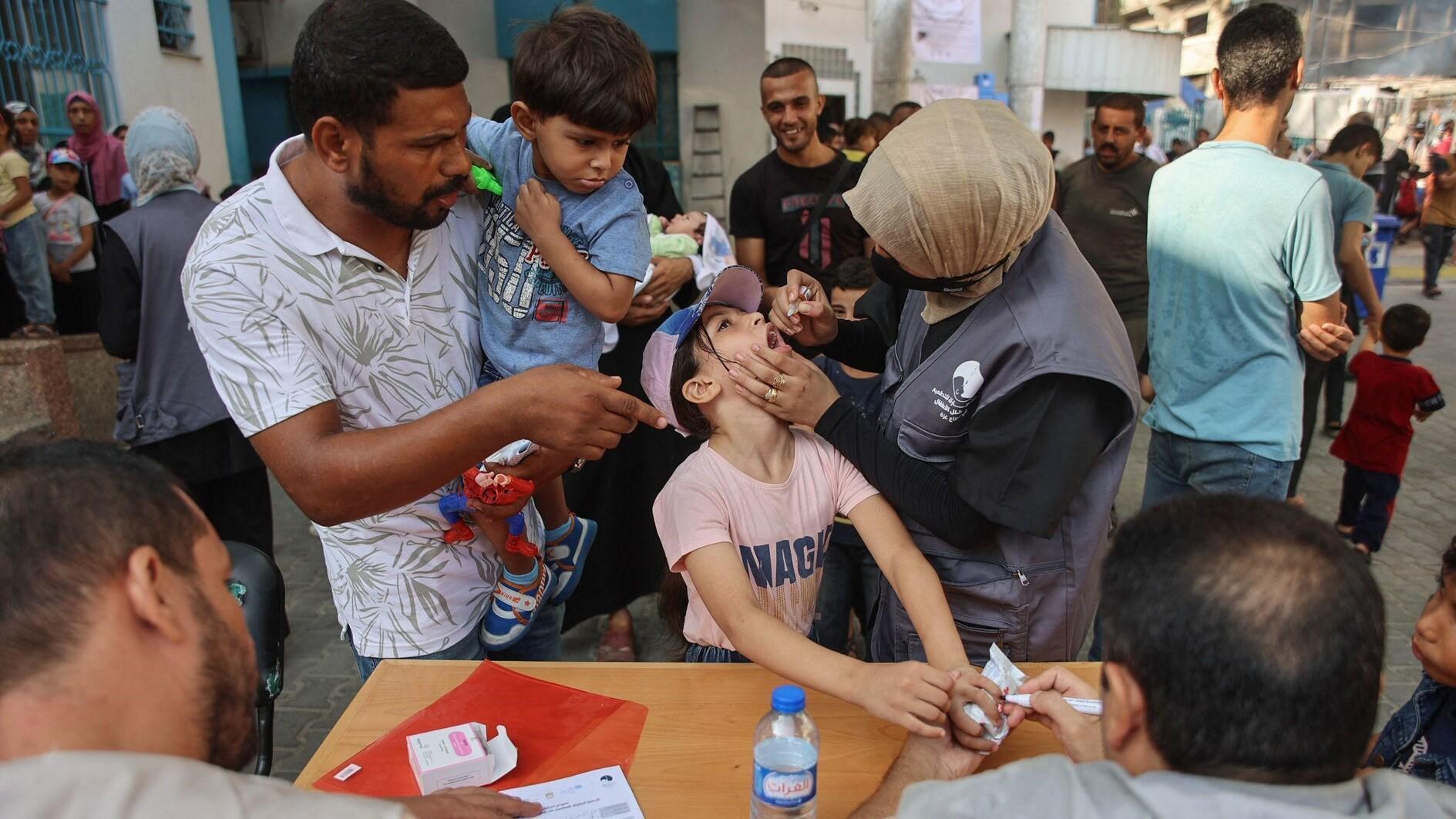Attack on Gaza Vaccination Center Leaves Four Children Wounded, WHO Condemns Breach of Humanitarian Pause
In a disturbing incident amid ongoing tensions, six individuals, including four young children, were wounded when an Israeli strike targeted a polio vaccination center in Gaza. The Sheikh Radwan Primary Health Care Centre, located in northern Gaza, came under attack while families were gathered to protect their children through vital vaccinations against polio—a life-threatening disease that can have lasting impacts on children’s health.
The incident took place in an area where a humanitarian pause had been established to ensure the safe administration of vaccines. World Health Organization (WHO) Director-General Tedros Adhanom Ghebreyesus expressed deep concern over the breach, emphasizing that the attack not only endangered children and families but also severely compromised essential health efforts aimed at protecting Gaza’s youngest residents.
The Attack and Its Consequences
WHO Chief Tedros shared the alarming news on X (formerly known as Twitter), stating, “The Sheikh Radwan primary health care centre in northern Gaza was struck today while parents were bringing their children to the life-saving polio vaccination.” He further added, “Six people, including four children, were injured.”
The polio vaccination initiative in Gaza was part of a broader international effort to prevent outbreaks of preventable diseases in conflict zones. Tedros emphasized the critical importance of safeguarding health services in regions affected by conflict, particularly where children are involved. “This attack, during a humanitarian pause, jeopardises the sanctity of health protection for children and may deter parents from bringing their children for vaccination,” he cautioned.
Humanitarian Pause Violated Amid Gaza Health Crisis
The polio vaccination campaign had been launched to address the significant public health risks faced by Gaza’s children. Polio is a highly infectious disease that primarily affects young children and can lead to irreversible paralysis or even death. Preventative measures like vaccines are essential, especially in areas facing disruptions to routine healthcare services.
The WHO team had been on-site at the Sheikh Radwan center shortly before the attack. The center was operating under a humanitarian pause—a temporary cessation of hostilities that was agreed upon specifically to allow the smooth execution of vaccination campaigns and other health services for vulnerable populations. These pauses are established to ensure access to critical health interventions for civilians, especially children, who are among the most vulnerable during conflict.
The breach of this humanitarian pause is significant not only because of the direct impact on those injured but also due to the broader implications it has for public health efforts. Health officials warn that if parents become fearful of bringing their children to healthcare centers, vaccination rates could drop, potentially leading to outbreaks of preventable diseases.
The WHO’s Call for Protection of Health Services
Following the attack, WHO officials reiterated the need for all parties to respect designated humanitarian pauses, particularly in regions where healthcare access is limited due to ongoing conflict. Tedros emphasized that these pauses must be “absolutely respected” to ensure the safety of civilians and the continuity of essential health services.
“This attack, during a humanitarian pause, jeopardizes the sanctity of health protection for children and may deter parents from bringing their children for vaccination,” Tedros stated, urging for a ceasefire to protect civilians and healthcare infrastructure. The WHO has been coordinating efforts to provide medical aid and vaccines to Gaza’s population, which has been under severe strain due to limited resources and continued conflict.
The organization has also called upon the international community to support health workers and facilities operating in conflict zones. Attacks on healthcare facilities not only put lives at immediate risk but also have lasting impacts on community trust and willingness to seek medical care. In regions like Gaza, where healthcare services are already under-resourced, any reduction in public confidence can have far-reaching consequences.
Global and Regional Implications
The recent attack in Gaza underscores the broader risks facing healthcare providers and patients in conflict zones around the world. The WHO has repeatedly emphasized that healthcare facilities should never be targets in conflict, as they serve a crucial role in protecting vulnerable populations. The incident raises urgent questions about how humanitarian organizations can safely deliver health services in conflict-affected areas without placing civilians at risk.
Source : Swifteradio.com


